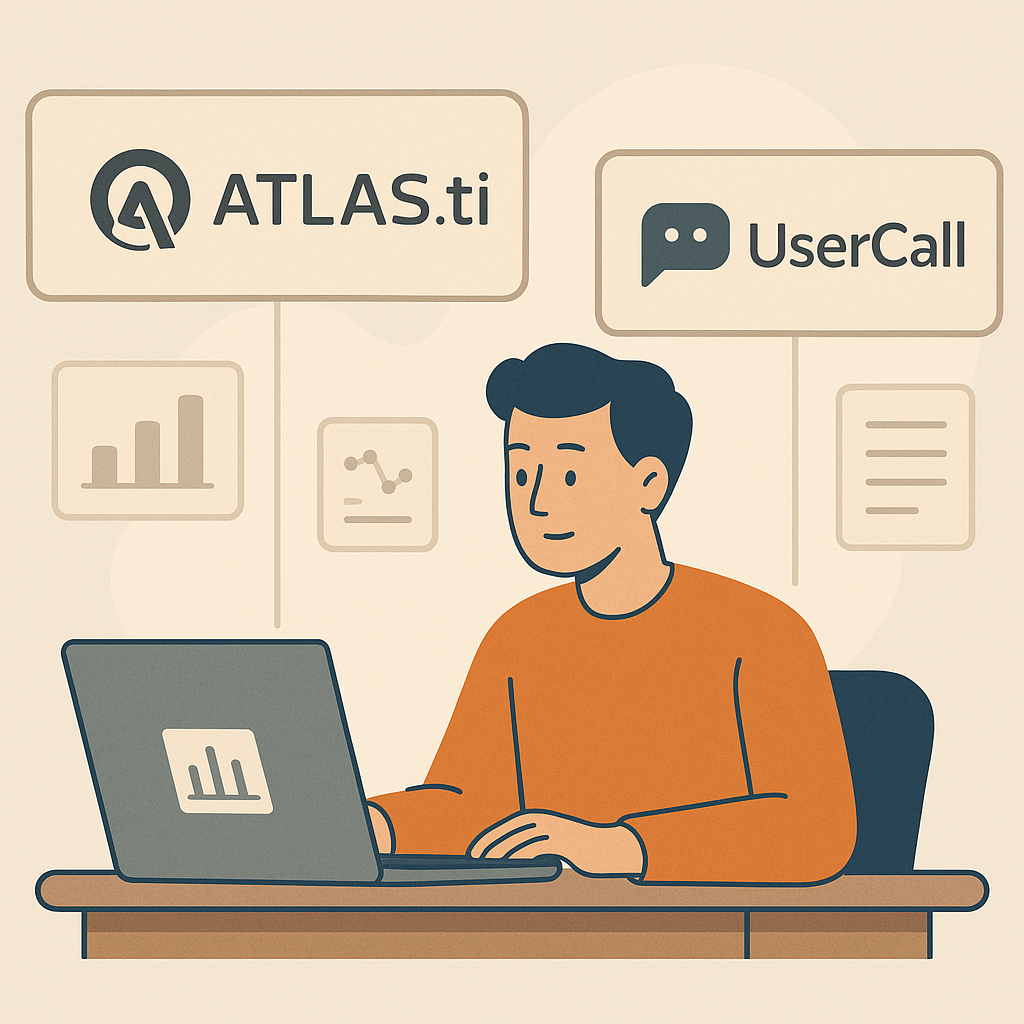
If you’re searching for ATLAS.ti pricing, you’re almost certainly comparing it against tools like NVivo, MAXQDA, Dedoose, or newer AI-native platforms such as UserCall.
ATLAS.ti has earned its reputation as one of the most established qualitative data analysis tools in the world. It’s trusted by universities, government researchers, and institutions that value manual rigor, methodological transparency, and deep control.
But in 2026, pricing questions are no longer just about license cost.
The real question most teams are asking is this:
Am I paying for software, or am I paying for weeks of researcher time that the software still requires?
As someone who has used ATLAS.ti in both academic and commercial research settings, I can say this clearly: the sticker price is only half the story. The bigger cost is the workflow you’re committing to.
This guide breaks down ATLAS.ti pricing in 2026, how the licensing model works, and how to think about its cost relative to modern AI-driven alternatives.
ATLAS.ti still uses a dual pricing model, which is one of the main reasons pricing feels confusing at first glance.
You can either:
Each option optimizes for a different type of researcher.
For those who prefer browser access and collaboration:
Free trial: Atlas.ti offers a trial period where you can test the full platform for a few days before committing.
Included:
Not included (or requires external work):
Here’s how Atlas.ti compares to other major qualitative research platforms:
Where Atlas.ti falls short compared to UserCall:
Atlas.ti is a great fit if you’re looking for academic rigor, manual control, and a proven tool trusted by universities and research institutions. The pricing is attractive for students and educators, and perpetual licenses give commercial teams long-term stability.
However, if your projects are fast-moving, storage-heavy, or require frequent coding, the manual effort can be costly. Modern tools like UserCall take a different approach—embedding AI into the workflow so researchers spend less time tagging data and more time uncovering insights.
I’ve personally run large projects in Atlas.ti where manual coding stretched into weeks. With newer AI-first platforms, that same dataset could be analyzed in hours—shifting the researcher’s role from mechanical coding to strategic interpretation.
Atlas.ti pricing in 2025 ranges from $5/month for students to $670 for commercial licenses, with team and institutional packages available. It remains one of the most established tools for qualitative research, particularly in academia.
But the research landscape is changing. If your goal is rigor and tradition, Atlas.ti still delivers. If your goal is speed, automation, and scalable insights, tools like UserCall may provide better value in the long run.